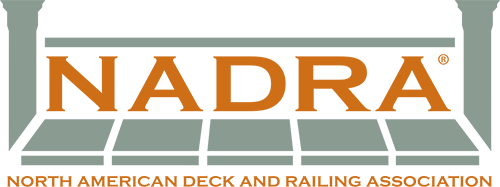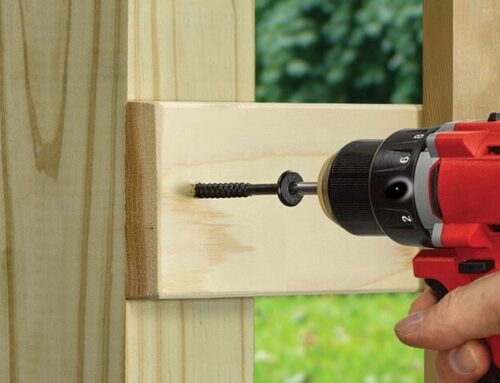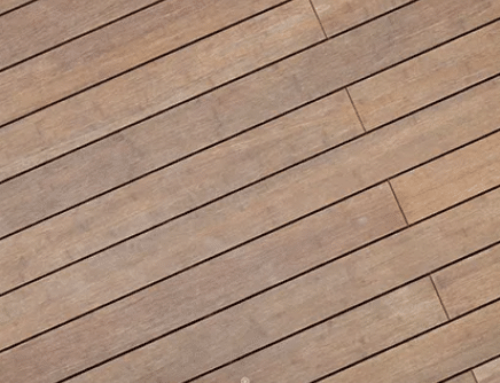July 3rd, 2019
By: Glenn Mathewson

To finish a marathon, you’ve got to push through the last mile. Such is the same with developing a new edition of the International Residential Code. Thousands of people are currently running a marathon toward the 2021 IRC, and though they are halfway through, there’s no telling who (or who’s proposals) will make it to the finish line. While it’s too soon to start cheering, it’s not to soon to feel confident and strong, and that’s how the NADRA and Deck Code Coalition proposals are looking.
With the publishing of the final report from the Committee Action Hearings, the public can not only see the results of the hearing, but also a summary of the comments made by the committee. There are three result categories, but since those aren’t “final” results, the comments should be the focus. The committee comments could be looked at as spectators cheering on or booing the runners. They provide direction, encouragement, and suggestions, much like “you got this! Keep going! You’re so close”. Unfortunately, sometimes the comments can feel more like “you’re never going to make it! Give up now! You look so tired!”
The race is not over until you pass the finish line, and sometimes people get a second wind. That’s what the next phase of the code modification process can offer—a second chance. Regardless of the committee result, every proposal can receive a public comment modification, and if received, the proposal will be heard again at the final hearings, where a final vote will be made…but not really. The final vote is actually made online a few weeks after the hearing. In this vote, only governmental ICC members can cast the final thumbs up or thumbs down. These members could vote down a proposal approved by the committee, and likewise, the members could turn around a proposal disapproved by the committee.
Public comments to the committee results are due July 24th and these will be the catalyst for the next step in the process. A proposal that does not receive a public comment is almost certain to be finalized as-is in the “bulk vote” where the governmental members vote for the entire package of proposals. Having not received any disagreement from the public, the assumption is that the committee opinion is good to go. Here is the part to pay close attention to:
If the committee result for a proposal is not challenged by July 24th, consider it done. If there is something you don’t like, silence is equivalent to support.
So let me put it this way… “Speak now or forever hold your peace”.
Okay…that’s not exactly true, but you would have to hold it until the 2024 IRC code development hearings where everything is on the table again.
Thanks to select NADRA members that have financially supported NADRA representation in the code modification process, I am working alongside other professionals in the Deck Code Coaltion and we are preparing public comments. We are running this marathon until the end. I hope you are on the sidelines cheering us on. Here are the results and comments from the Committee Action Hearings that have us in a runner’s high. You can view all the Group B ICC documents and the live video from the Group B hearing at this link: https://www.iccsafe.org/products-and-services/i-codes/code-development/
RB184: Disapproved
Committee Reason: There were multiple corrections expressed in a modification that the committee felt was too extensive. The wording in Section 507.4 is confusing. The committee urges that the corrections should be brought forward in a public comment. The collaborative effort, and inclusion of engineers in the effort, was a positive aspect for this proposal. (Vote: 10-1)
RB185: Approved As Modified
Committee Reason: The modification to Section R507.10.1.2 removed ‘approved’ because this adjective cannot be applied to manufacture’s instructions. The modification to Section to R507.10.2 reworded the two sentences for clarity. The modification to Section R507.10.4 removes ‘approved’ because this would be confusing to the homeowner. The proposal provided good general prescriptive language for guards that will reduce the need for engineering of guards. The committee had several suggestions for better wording that should come forward in a public comment: Add ‘also’ to Section R312.1.4; ‘design’ instead of ‘construction’ in Section 507.10; revise ‘prevent’ to ‘limit’ in Section R507.10.1.1; joists are part of the deck framing, so the language in Section R507.10.1 is confusing. (Vote: 9-2)
RB186: Approved As Modified
Committee Reason: The modification restores rivets and puts in the term ‘glulam’ to be consistent with the term used in ASTM F1667. Adding the Class D is appropriate for this product. (Vote: 11-0)
RB187: Approved As Submitted
Committee Reason: The committee felt that the overall proposal is a good reorganization that add clarity to the code requirements. Item 3 in Section R507.3.3 is an alternative means that is currently allowed in Chapter 1. (Vote: 11-0)
RB188: Approved As Submitted
Committee Reason: This revision will clarify the engineering option for deck beams where fastened together. (Vote: 11-0)
RB189: Approved As Submitted
Committee Reason: This change clarifies the cantilever limitations. (Vote: 11-0)
RB190: Approved As Submitted
Committee Reason: The proposed footnote allows for a design that does not use the full cantilever, which will allow for a more efficient design. If you do not use this option, the table is more conservative. The commentary should include an example. (Vote: 11-0)
RB191: Approved As Submitted
Committee Reason: The revisions add clarification to the code and allows for better design practice for wood decking. (Vote 11-0)



